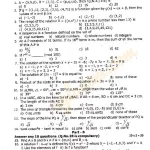The 6th tamil book is a comprehensive resource designed to introduce students to the rich literary and cultural heritage of Tamil Nadu.
The exact content may vary depending on the specific curriculum, but generally, it includes the following sections:
- Prose:
- Stories
- Essays
- Biographies
- Historical events
- Poetry:
- Classical poems
- Modern poems
- Folk songs
- Grammar:
- Parts of speech
- Tenses
- Sentence structure
- Punctuation
- Composition and comprehension exercises
- Supplementary Reading:
- Short stories
- Moral tales
- Fables
- Cultural and Historical Lessons:
- Contributions of Tamil scholars and poets
- Historical significance of Tamil language and literature
- Festivals and traditions of Tamil Nadu
All 6th Class Tamil Books in Full Detail
Prose: Engaging Narratives with Life Lessons
The prose section of the 6th class Tamil book includes stories, essays, and biographies that are both educational and entertaining. Each piece is selected to impart moral values, historical knowledge, and cultural understanding.
- Stories:
- “கண்காணி”: A story that emphasizes the importance of wisdom and cleverness in overcoming challenges. The protagonist, a young child, uses intelligence to solve problems that adults find difficult.
- “சிறுவர் சிந்தனை”: Focuses on the importance of positive thinking and how a child’s perspective can bring about change in a community.
- Essays:
- “சூழலியல்”: An essay on the environment, discussing the significance of preserving nature and the steps students can take to contribute to environmental protection.
- “நம் ஊரின் பண்டிகைகள்”: This essay explores various festivals celebrated in Tamil Nadu, highlighting their cultural and social importance.
- Biographies:
- “பாரதியார்”: A biography of the great Tamil poet Subramania Bharati, detailing his contributions to Tamil literature and Indian independence.
- “திருவள்ளுவர்”: A look at the life and works of Thiruvalluvar, the celebrated author of the Thirukkural, emphasizing his teachings on ethics and morality.
Poetry: Exploring Emotions and Imagination
The poetry section includes a diverse range of poems from classical to modern, offering students an opportunity to appreciate the beauty and depth of Tamil poetry.
- Classical Poems:
- “அகநானூறு”: A selection of verses from this ancient Tamil poetic work, showcasing themes of love and valor. The poems offer insights into the lives and emotions of people in the Sangam era.
- “புறநானூறு”: Excerpts from this classic text that depict the external world, including war, politics, and the relationship between kings and their subjects.
- Modern Poems:
- “புதுமைப்பித்தன் கவிதைகள்”: Poems by Pudhumaipithan, known for their modern themes and innovative styles. These poems often reflect contemporary social issues and human experiences.
- “வீரகாவியங்கள்”: Modern epic poems that tell stories of heroism and adventure, inspiring students with tales of courage and perseverance.
- Folk Songs:
- “நாட்டுப்புற பாடல்கள்”: A collection of folk songs that celebrate rural life, traditions, and community spirit. These songs are rhythmic and engaging, making them easy for students to remember and recite.
Grammar: The Foundation of Language
The grammar section is crucial for building a strong foundation in the Tamil language. It covers essential grammatical concepts that help students develop their writing and speaking skills.
- Parts of Speech:
- Detailed lessons on nouns, pronouns, verbs, adjectives, and adverbs, with examples and exercises to reinforce understanding.
- Tenses:
- Explanation of past, present, and future tenses, with practice sentences to help students grasp the correct usage of each tense.
- Sentence Structure:
- Lessons on forming simple, compound, and complex sentences, enhancing students’ ability to write clearly and coherently.
- Punctuation:
- Comprehensive guide to the use of punctuation marks, including periods, commas, question marks, and exclamation points, with exercises to practice correct punctuation.
Supplementary Reading: Stories with Moral Lessons
The supplementary reading section includes additional stories and fables that are both entertaining and instructive. These tales often feature moral lessons that reinforce ethical values.
- Short Stories:
- “மூத்தநரை”: A story about the wisdom of the elderly and the respect they deserve in society.
- “மரக்கிளையின் கதை”: A tale about the importance of protecting trees and the environment.
- Fables:
- “குரங்கு மற்றும் मगर”: A fable about a monkey and a crocodile that teaches the value of intelligence and quick thinking.
- “நல்ல நண்பர்கள்”: A story about friendship and loyalty, highlighting the importance of having good friends.
Cultural and Historical Lessons: Connecting with Our Heritage
This section covers the cultural and historical significance of Tamil language and literature, helping students connect with their heritage.
- Contributions of Tamil Scholars:
- Lessons on the works of great Tamil scholars and poets like Kambar, Ilango Adigal, and Avvaiyar, emphasizing their contributions to Tamil literature and society.
- Evolution of the Tamil Language:
- A historical overview of the development of the Tamil language from ancient times to the modern era, highlighting significant milestones and literary works.
- Festivals and Traditions:
- An exploration of the various festivals and traditions of Tamil Nadu, such as Pongal, Deepavali, and Tamil New Year, explaining their cultural and social importance.
The 6th class Tamil book is a treasure trove of knowledge, designed to enhance your understanding of the Tamil language and its rich literary heritage. By engaging with the prose, poetry, grammar, and supplementary readings, you will not only improve your language skills but also develop a deeper appreciation for Tamil culture and history.
Latest Posts
- Step-by-step guide to download and apply for jee mains admit card 202
- Comprehensive 2025 government holidays and recruitment details for job seekers
- JEE Mains Admit Card 2025: Your Step-by-Step Guide to Downloading the Hall Ticket
- Everything You Need to Know About 2025 Government Holidays Recruitment
- Comprehensive Guide to rrb d group recruitment 2025 – Eligibility, Vacancies, and Application
- Detailed guide to nps trust recruitment 2025 vacancies, eligibility and apply process
- Comprehensive guide to hpcl recruitment 2025 notification, vacancies, and application process
- ignou bed admission 2025 complete recruitment guide with eligibility and process
- Comprehensive Guide to Indian Army Agniveer Recruitment 2025 Notification and Jobs
- Everything You Must Know About CBSE Board Exams 2025 Changes & New Rules






